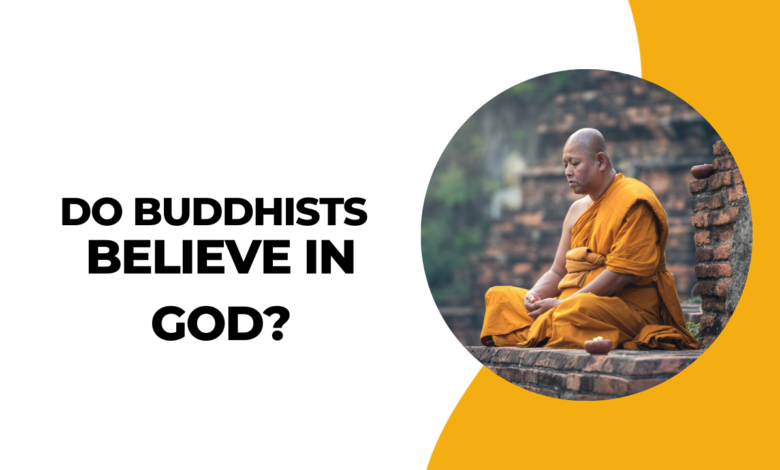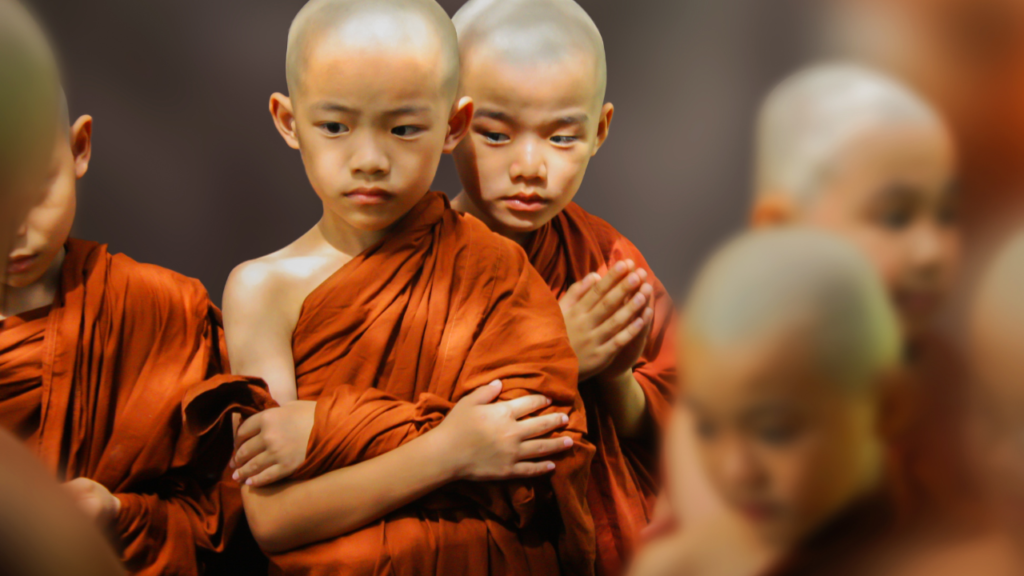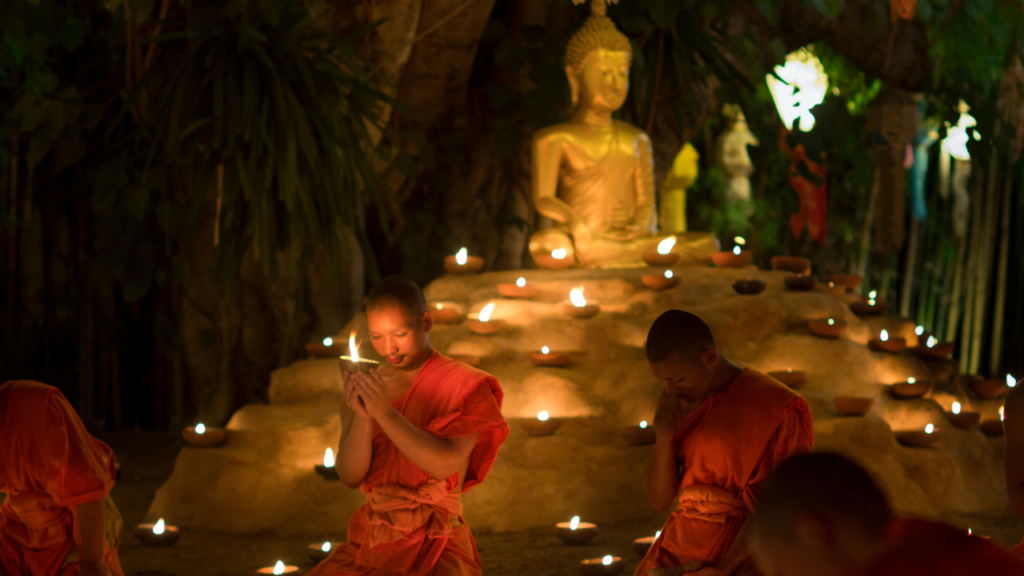Do Buddhists Believe In God?
Exploring the nuanced relationship between Buddhism and the concept of God

Do Buddhists Believe In God?
No, traditional Buddhism does not revolve around the belief in a supreme, all-powerful God. Buddhism is often considered a non-theistic or atheistic religion.

Introduction
Buddhism is a profound and ancient spiritual tradition that has captured the hearts and minds of millions worldwide. While Buddhism is renowned for its teachings on compassion, mindfulness, and the path to enlightenment, the question of whether Buddhists believe in God remains a subject of curiosity and debate. In this article, we will explore the intricate relationship between Buddhism and the concept of God, dissecting the various schools of Buddhist thought and their views on the divine.
Buddhism: A Non-Theistic Religion
Buddhism is often classified as a non-theistic religion, which means that it neither affirms nor denies the existence of a personal, creator God. This distinction sets Buddhism apart from many Western religions, such as Christianity, Judaism, and Islam, which prominently emphasize belief in a divine being. The absence of a clear assertion of a creator God in Buddhist teachings has led some to conclude that Buddhists do not believe in God.
The Buddha’s Teachings
At the heart of Buddhism are the teachings of Siddhartha Gautama, the Buddha, who lived in ancient India around the 5th century BCE. The Buddha’s core teachings, often referred to as the Four Noble Truths and the Noble Eightfold Path, revolve around suffering, its causes, and the means to end it. In these foundational teachings, there is no mention of a supreme deity responsible for the universe’s creation or governing its affairs.
The Nature of Deities in Buddhism
While Buddhism may not embrace the idea of a personal God, it does acknowledge the existence of various deities and celestial beings within the belief system. These celestial beings, known as devas, are not regarded as all-powerful or eternal, but rather as beings who have achieved a higher level of existence due to their past virtuous actions. They are not seen as creators but as part of the cycle of samsara (rebirth), just like humans.
The concept of devas underscores that Buddhism does not outright reject the idea of divine beings but reframes their existence within the context of karma and rebirth, emphasizing the impermanence of all phenomena.
Also Check
- Is Buddhism Polytheistic?
- Does Buddhism have a God?
- Is Christian Bale British?
- Is Drake a Christian?
- Is Taylor Swift a Christian?
The Role of Prayer and Rituals
Buddhism incorporates prayer and rituals in its various traditions. While these practices may involve supplication to deities or seeking their blessings, the understanding is that these rituals serve as means to create positive karma and cultivate qualities like compassion, wisdom, and mindfulness. Buddhists do not expect divine intervention in the way followers of some theistic religions might when they pray.
Buddhism’s Compatibility with Atheism
One interesting aspect of Buddhism is its compatibility with atheism. Some Buddhists identify as atheists and do not hold any belief in gods or supernatural entities. They may embrace Buddhism for its philosophical and ethical teachings while rejecting any notion of the divine. Buddhism’s flexibility allows for a wide range of interpretations and personal beliefs within its framework.
Conclusion
In the end, the question of whether Buddhists believe in God is nuanced and multifaceted. Buddhism, as a non-theistic religion, does not assert the existence of a personal, all-powerful God responsible for the creation of the universe. However, it acknowledges the existence of deities within the context of karma and rebirth. Moreover, Buddhism is accommodating of a wide spectrum of beliefs, including atheism. Ultimately, what Buddhists believe in terms of God or the divine is a matter of personal interpretation, and the emphasis within Buddhism is on individual spiritual development and enlightenment, rather than dogmatic adherence to particular theological doctrines.

(FAQs) about the belief of Buddhists in God:
Do Buddhists believe in God?
No, traditional Buddhism does not revolve around the belief in a supreme, all-powerful God. Buddhism is often considered a non-theistic or atheistic religion.
If Buddhists don’t believe in God, what do they believe in?
Buddhists believe in the principles of the Four Noble Truths and the Eightfold Path, which provide a framework for understanding suffering and achieving enlightenment. They also revere the teachings of Siddhartha Gautama, the historical Buddha.
Is there any room for deities or divine beings in Buddhism?
Some forms of Buddhism, like Mahayana and Tibetan Buddhism, incorporate deities and celestial beings, but these are not considered all-powerful creators in the way God is in some other religions. They are more like guides or symbols of certain qualities.
Can Buddhists pray to a God if they choose to?
Buddhism allows for a degree of flexibility in personal belief. Some Buddhists might incorporate prayer to a deity into their practice, while others do not. It varies among different Buddhist traditions and individuals.
Are there any gods mentioned in Buddhist scriptures?
Buddhist scriptures mention various celestial beings, but these beings are not creators of the universe. They are considered to be subject to the cycle of birth and death, just like humans.
Can one be a Buddhist and still believe in God?
Yes, some people identify as both Buddhists and believers in a god or gods. Buddhism is often seen as a philosophy and a way of life, so some individuals may choose to combine elements of both belief systems.
Why is Buddhism often considered atheistic?
Buddhism is considered atheistic because it does not rely on a creator deity or a single, all-powerful God in the traditional sense. Instead, it emphasizes personal responsibility, inner transformation, and self-realization.
What is the role of meditation in Buddhism?
Meditation is a central practice in Buddhism, used to gain insight, mindfulness, and ultimately achieve enlightenment. It helps individuals understand the nature of suffering and the impermanence of all things.
Do Buddhists believe in karma and reincarnation?
Yes, most Buddhists believe in karma (the law of cause and effect) and reincarnation (the cycle of birth, death, and rebirth). These concepts are fundamental to Buddhist teachings.
Is Buddhism considered a religion or a philosophy?
Buddhism is often described as both a religion and a philosophy. It encompasses spiritual and ethical principles, but it does not revolve around the worship of gods, which is a defining characteristic of many religions.